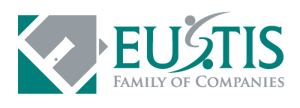
This week, Fannie Mae introduced its new mortgage regulations for self-employed borrowers throughout the country. The new rules particularly focus on the documentation of self-employment income. According to the report, the new guidelines are as follows:
- Self-employed borrowers are no longer always required to provide two years of federal income tax returns to their mortgage application. Instead, the borrower may only need to supply their lender with the past year’s tax returns. Since this change does not apply to everyone, you should talk to your mortgage specialist to determine your eligibility.
- If a business owner has a short history of self-employment (12-24 months) they can still be considered. However, they must show that their most recent signed federal income tax returns show that their income is at least equal level in a field that provides the same services or products as the business.
- When a borrower is qualified using solely income that is not derived from self-employment, and self employment is a secondary and separate source of income, the lender no longer needs to prepare a written evaluation of the self-employed borrower’s income. Examples of incomes that are not derived from self-employment are salary and retirement income.
Although Fannie Mae has worked towards creating less stringent guidelines for nearly two years now, these new introductions are sure to make the mortgage process less time consuming for the nation’s 14-million self-employed borrowers. It’s important to remember, however, that these new rules only apply to conventional home loans.
Overall, with less required paperwork and low mortgage rates, it could therefore be a great time to enter the housing market if you’re a self-employed worker interested in a conventional loan. For more information about borrowing with self-employment, or to learn more about home financing, contact one of our mortgage specialists today.


